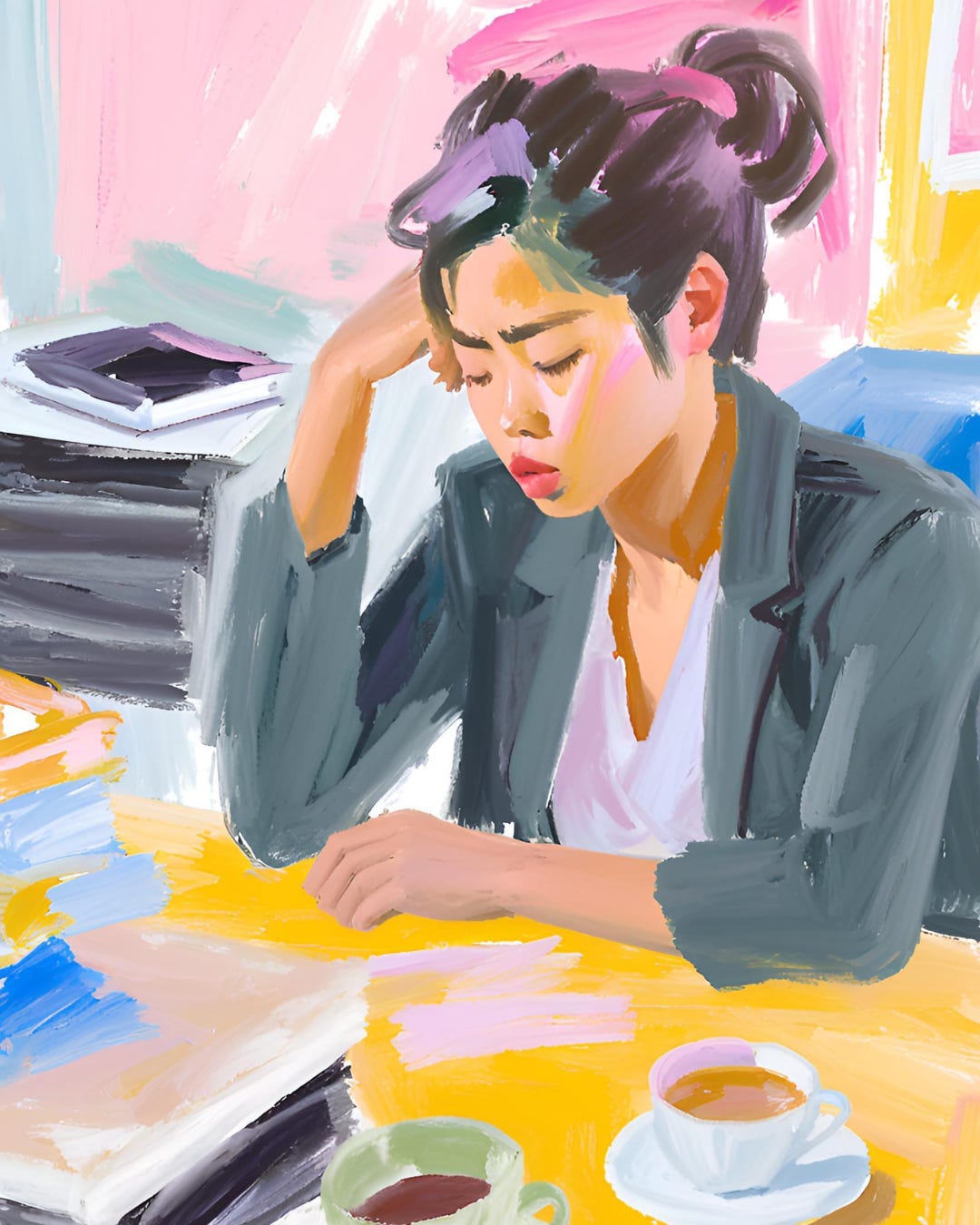The Silent Penalty at Work: Chronic Illness in Singapore’s Hustle Culture
We’re a city that prides itself on efficiency, where working hard isn’t just encouraged—it’s expected.
The Rules Were Never Meant for Bodies Like Ours
There’s a rhythm to working life in Singapore.
Emails before breakfast. Slack notifications at midnight. KPIs, stretch goals, back-to-back Zooms, and the sacred hustle.
But chronic illness rewrites the rhythm.
It disrupts the neatly packed schedule, inserts pauses where productivity should be, and demands rest that can’t be negotiated. And in a culture where speed is synonymous with success, that pause can feel like failure.
This is the silent penalty that people with chronic illness face—not written in policy, not explicitly stated in contracts, but felt in the undercurrent of every team meeting, every performance review, every time someone apologises for needing rest.
Succeeding in a System That Wasn’t Built for You
It starts small.
A few too many sick days. Fatigue that doesn’t quite go away. A medical diagnosis that doesn’t come with a roadmap for how to stay employed, let alone excel.
For many in Singapore, chronic illness doesn’t mean dropping out of the workforce—it means learning to survive in one that wasn’t designed for you. It means turning up on camera for meetings when your body is in pain, replying to messages from bed, navigating flare-ups while pretending nothing’s wrong. It means becoming a master at masking discomfort, because looking "sick" might cost you more than just sympathy.
The unspoken fear is real: will I be seen as less reliable, less competent, less promotable?
Even when colleagues are kind. Even when bosses are understanding. The culture whispers that slowing down is falling behind—and no one wants to be the weakest link.
Between Sick Leave and Shame
Singapore’s employment laws provide for paid sick leave and medical benefits. But chronic illness doesn’t fit neatly into 14 days of MC.
There are appointments, tests, treatment side effects. Days when your immune system turns on you. Weeks when your medication suddenly stops working. And always, the dread of using up your sick leave too early in the year—of having to choose between showing up and burning out.
So people ration their MCs like precious currency. They save them “for when it gets really bad.” They work through pain, take meetings mid-flare, or schedule procedures around peak work seasons—hoping to minimise disruption, stay "low-maintenance," remain employable.
The irony is sharp: we’re told to “listen to our bodies,” but punished—socially, financially, professionally—when we do.
Visibility Without Safety
Many people with chronic illness carry an invisible burden.
Some conditions don’t come with mobility aids or obvious symptoms. From the outside, everything looks fine. But inside, there’s pain, fatigue, brain fog, or an immune system in rebellion.
Speaking up can be risky. Disclosing a diagnosis doesn’t guarantee support—it sometimes triggers discomfort, distancing, or outright discrimination. Others mean well but offer solutions when what you really need is understanding. Some go silent, unsure of what to say. A few assume you’re exaggerating.
And so, many stay quiet. They keep their struggles out of sight, absorbing the emotional cost alone, navigating the maze of managing a body that won’t behave in a world that demands non-stop output.
The Quiet Career Detour
Career growth, in many Singaporean workplaces, is linked to visibility, assertiveness, and the willingness to go “above and beyond.” But chronic illness often means doing just enough to sustain health and income.
Opportunities are declined—not because of lack of ambition, but because of self-preservation. Overseas work trips, after-hours client calls, cross-departmental projects—all get weighed against energy levels and recovery time.
Sometimes promotions are passed over, not because of lack of skill, but because leadership roles come with expectations that aren’t compatible with medical appointments, energy crashes, or flexible hours.
The result? A quiet detour. A career that veers sideways, slower, steadier—not less valuable, but often less recognised.
Rewriting the Idea of Work
Chronic illness forces a reevaluation of what work means, and what we expect from workers.
Should output be the only measure of value?
Can leadership look like collaboration instead of domination?
Can resilience mean rest, not relentless pursuit?
The truth is, what people with chronic illness bring to the workplace is often deeply underestimated. The ability to problem-solve under pressure. Empathy in team dynamics. Perspective. Creativity born from living at the edge of one’s limits. Discipline in energy management. Unshakable grit.
But these strengths only thrive in environments where support isn’t conditional on performance—where flexibility isn’t seen as a special favour, but a recognition of human diversity.
A Culture Shift Begins with Listening
This isn’t a call to pity. It’s a call to widen the lens.
Not everyone is built for hustle. Not everyone can grind through the day and bounce back the next morning. And that’s not a personal failing—it’s a systemic blind spot.
If we want a truly inclusive working world, we need to reimagine what success looks like. That starts with creating space—for conversations, accommodations, and compassion. It starts with believing that people don’t need to “prove” how sick they are to deserve support. It starts with normalising boundaries instead of burning out.
Because in the long run, a workforce that embraces its differences isn’t just kinder. It’s stronger.





The article really sums up my thoughts about how those with chronic illness are being treated at ths workplace. I'm.going thru it now. Each time I receive email.from HR, I get triggered emotionally. While sitting on the hospital bed post covid infection, a week after blood plasma exchange, looking at how to apply for.my previous HL due to part time.work arrangement which I did not request for, I felt so abandoned after years of service. Loyalty means nothing now.when you have become a liability.....